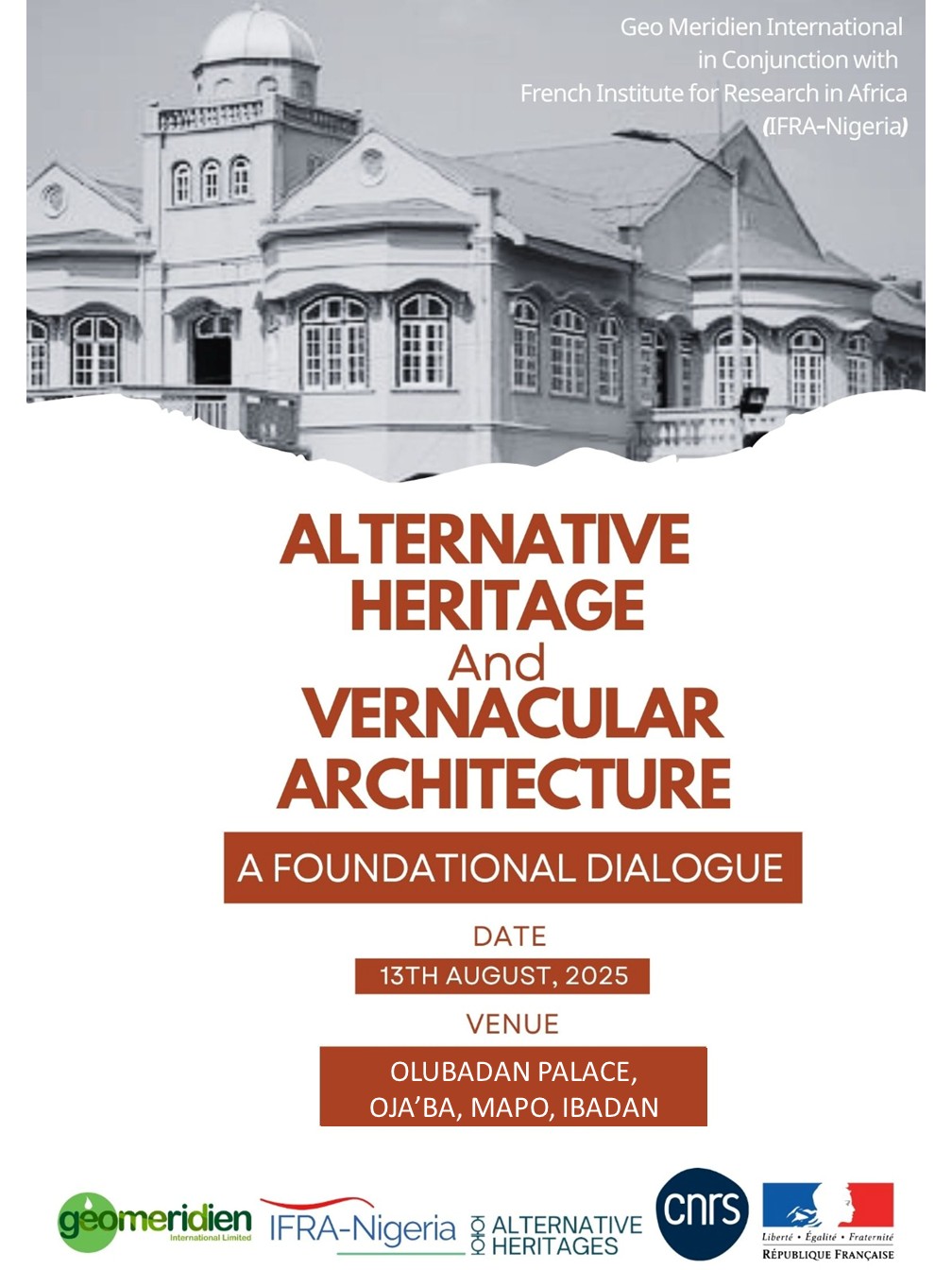 Geo Meridien International in partnership with IFRA-Nigeria invites you to the Alternative Heritages Conference, themed “Alternative Heritage and Vernacular Architecture - A Foundational Dialogue”. This conference is held as part of the Nigerian Alternative Heritages project, financed by the French Embassy Fund (FEF).
Geo Meridien International in partnership with IFRA-Nigeria invites you to the Alternative Heritages Conference, themed “Alternative Heritage and Vernacular Architecture - A Foundational Dialogue”. This conference is held as part of the Nigerian Alternative Heritages project, financed by the French Embassy Fund (FEF).
This conference brings together academics, architects, historians, heritage professionals, conservators, art historians, archaeologists and anthropologists for a foundational conversation on the intersections of alternative heritage and vernacular architecture. The gathering will offer a space for critical dialogue, exploring the social, architectural, and cultural significance of alternative heritage spaces that are central to community identity but largely undocumented. Other sub-themes include: Gender, Ritual, and Memory in the Spaces We Inhabit; Preserving the Architecture of the Unrecorded; and Rethinking Preservation through Community, Oral Traditions, and Everyday Architecture
Practical information:
Venue: Old Olubadan Palace, Oja’ba, Mapo, Ibadan
Time & date: 13 August, 2025, 9:00am
Open to everyone
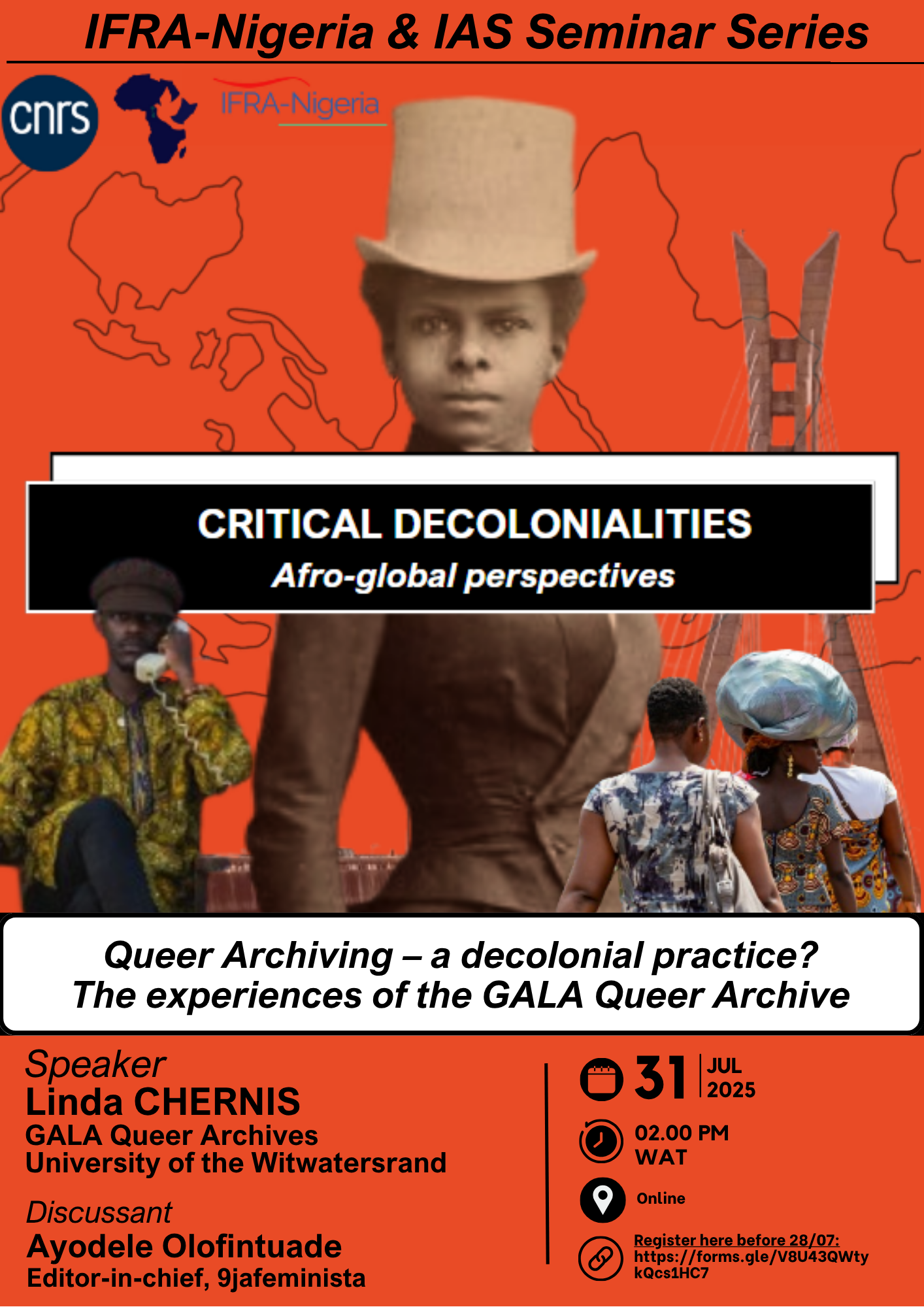 On 31 July, the Institute of African Studies (IAS) of the University of Ibadan and IFRA-Nigeria organized the fourth session of the Critical Decolonialities Seminar on the topic of “Queer Archiving – a decolonial practice? The experiences of the GALA Queer Archive”. Professor Sola Olorunyomi, director of IAS, and Dr Barbara Morovich, Director of IFRA-Nigeria, introduced the two speakers. Linda Chernis is an archivist at the GALA Queer Archive, an organization dedicated to the preservation, production and dissemination of LGBTQIA+ people in South Africa. Ayodele Olofintuade is a writer and editor-in-chief of 9jafeminista an online blog focusing on feminist and queer issues in Nigeria.
On 31 July, the Institute of African Studies (IAS) of the University of Ibadan and IFRA-Nigeria organized the fourth session of the Critical Decolonialities Seminar on the topic of “Queer Archiving – a decolonial practice? The experiences of the GALA Queer Archive”. Professor Sola Olorunyomi, director of IAS, and Dr Barbara Morovich, Director of IFRA-Nigeria, introduced the two speakers. Linda Chernis is an archivist at the GALA Queer Archive, an organization dedicated to the preservation, production and dissemination of LGBTQIA+ people in South Africa. Ayodele Olofintuade is a writer and editor-in-chief of 9jafeminista an online blog focusing on feminist and queer issues in Nigeria.
Watch the full seminar on YouTube: https://youtu.be/OeaYsbKJt-4
Continue Reading
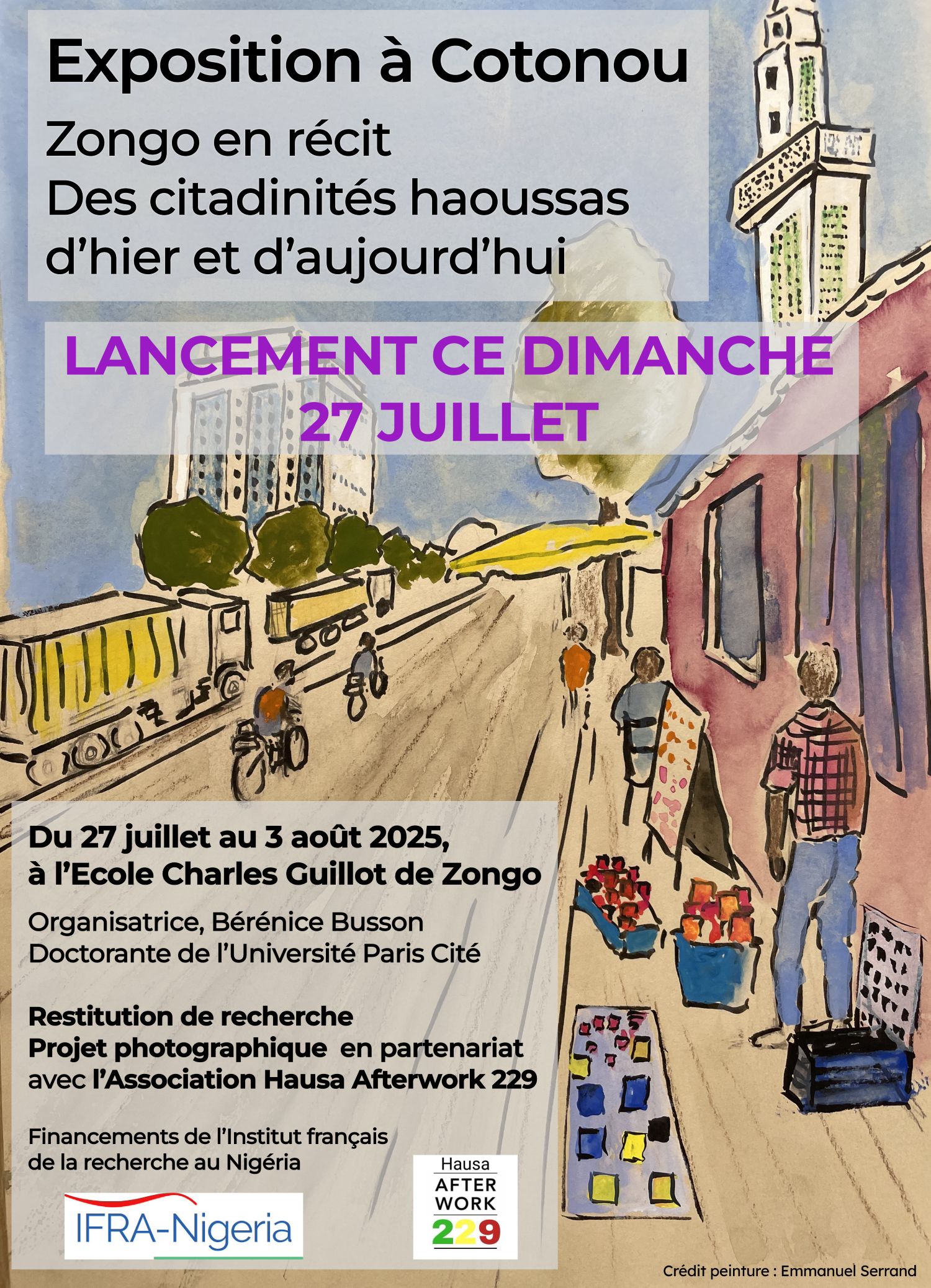 The exhibition "Zongo en recit, des citadinites haoussas d'hier et d'aujourd'hui" is taking place in Cotonou, Benin Republic, 26 July and 3 August. Berenice Busson, PhD student at Universite Paris Cite and its organisator, presented her pictures and the result of her research in the Zongo neighbourhood of Cotonou.
The exhibition "Zongo en recit, des citadinites haoussas d'hier et d'aujourd'hui" is taking place in Cotonou, Benin Republic, 26 July and 3 August. Berenice Busson, PhD student at Universite Paris Cite and its organisator, presented her pictures and the result of her research in the Zongo neighbourhood of Cotonou.
The exhibition explores the history of Hausa settlement in Cotonou, how these Hausa city dwellers build a sense of belonging to the city, the challenges they face, the successes they achieve, how they negotiate their relationships with public officials.
To learn more, visit the exhibition's Instagram page
Continue Reading
IFRA_Nigeria is pleased to announce the upcoming Alternative Heritage and Vernacular Architecture Conference, a premier gathering and a foundational dialogue for academics (confirmed, young PhD and Master students), culture and heritage professionals, architects, heritage conservators, art historians, archaeologists, …, taking place on 13 August 2025 in Ibadan. Two main sessions will involve an academic conference and a round table with different stakeholders cordially invite you to submit abstracts to participate and present your research papers, groundbreaking methodologies and practices, and case studies at this important event. The proposition will be chosen on the basis of an original perspective and fieldwork. Purely theoretical and second-hand abstract will not be considered as relevant.
Conference Theme: Alternative Heritage and Vernacular Architecture - A Foundational Dialogue
Continue Reading
 IFRA-Nigeria and the Institute of African Studies are pleased to invite you to another session of the "Critical Decolonialities: Afro-global perspectives" seminar series scheduled for 31 July 2025. This session will feature Linda Chernis, GALA Queer Archives, University of the Witwatersrand, who will present on “Queer Archiving – a decolonial practice? The experiences of the GALA Queer Archive”.
IFRA-Nigeria and the Institute of African Studies are pleased to invite you to another session of the "Critical Decolonialities: Afro-global perspectives" seminar series scheduled for 31 July 2025. This session will feature Linda Chernis, GALA Queer Archives, University of the Witwatersrand, who will present on “Queer Archiving – a decolonial practice? The experiences of the GALA Queer Archive”.
Linda Chernis will discuss ways in which queer histories and archives can be used to challenge dominant perceptions of history and traditional archives, including methods for ‘activating’ the archive, and making it more accessible and inclusive. Being an independent, activist archive that focuses on marginalised voices, she will invite us to constantly rethink how we work and how we add to and adapt from the traditional concept of an archive. In current tumultuous context, it is more important than ever to preserve queer voices, past and present, from the drive towards silencing and erasure that is sweeping large parts of the world.
Continue Reading
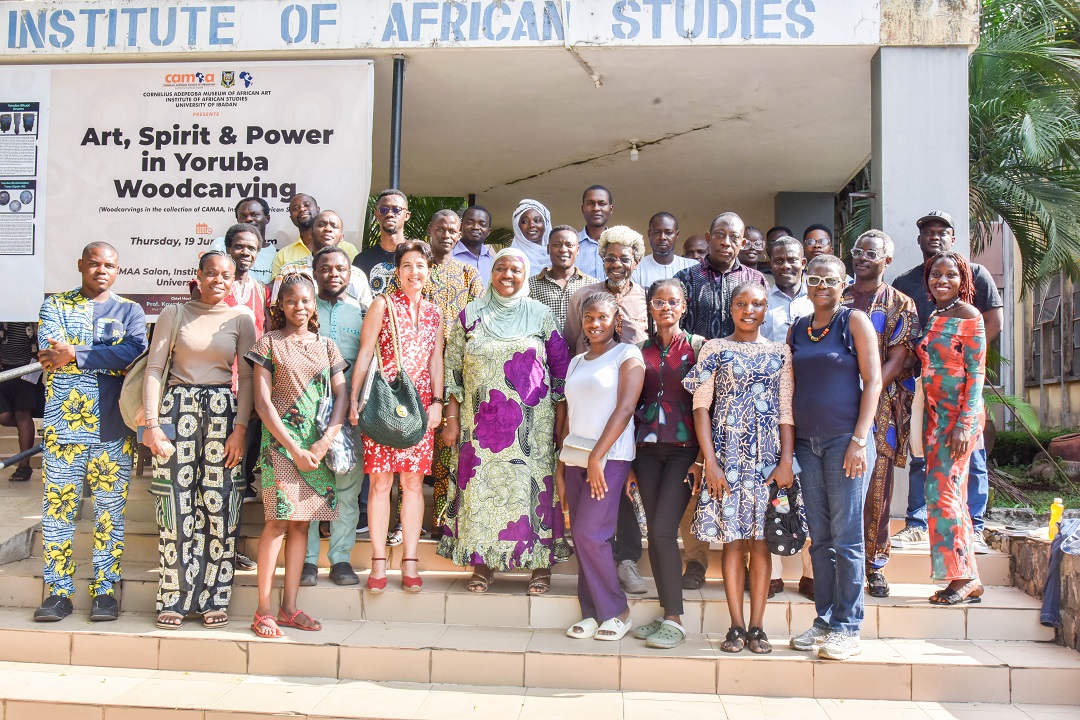 On 25 June, IFRA-Nigeria, in collaboration with the Institute of African Studies, University of Ibadan, hosted Dr Mutiat Titilope Oladejo (Department of History, University of Ibadan) and Dr Ayo Adeduntan (Institute of African Studies, University of Ibadan) for another edition of the “Critical Decolonialities” seminar series. The session, titled “(De)Colonial Dynamics of Science-Based Research at the University of Ibadan (Nigeria), 1962 - 1983,” explored the evolution of science-based research at the University of Ibadan (UI) through the dual lenses of colonial legacies and Afrocentric renewal.
On 25 June, IFRA-Nigeria, in collaboration with the Institute of African Studies, University of Ibadan, hosted Dr Mutiat Titilope Oladejo (Department of History, University of Ibadan) and Dr Ayo Adeduntan (Institute of African Studies, University of Ibadan) for another edition of the “Critical Decolonialities” seminar series. The session, titled “(De)Colonial Dynamics of Science-Based Research at the University of Ibadan (Nigeria), 1962 - 1983,” explored the evolution of science-based research at the University of Ibadan (UI) through the dual lenses of colonial legacies and Afrocentric renewal.
Originally established as part of the British "civilizing mission" in Africa, UI has since emerged as a vital space for interrogating and reshaping the production of scientific knowledge.
Continue Reading
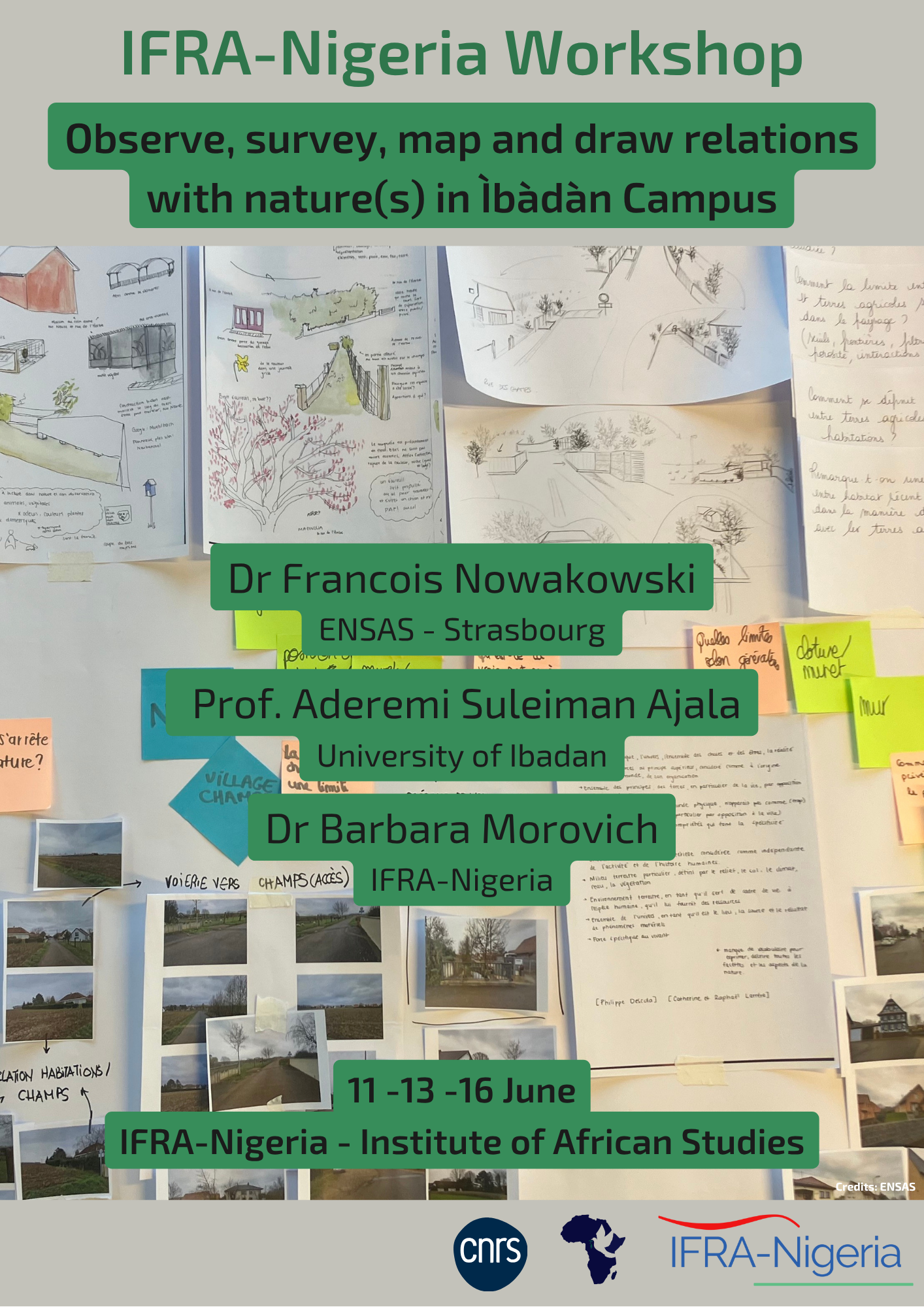 On 11, 13 and 16 June, IFRA-Nigeria organized a practical research workshop titled “Observe, survey, map and draw relations with nature(s) in Ibadan Campus.” Its goal: introduce 20 master’s students to original methods of doing research, in particular anthropology and urbanism, and, most of all, to give them the opportunity to practice them within the campus.
On 11, 13 and 16 June, IFRA-Nigeria organized a practical research workshop titled “Observe, survey, map and draw relations with nature(s) in Ibadan Campus.” Its goal: introduce 20 master’s students to original methods of doing research, in particular anthropology and urbanism, and, most of all, to give them the opportunity to practice them within the campus.
Three researchers hosted this workshop: Dr François Nowakowski (National School of Architecture Strasbourg, France), Professor Aderemi Suleiman Ajala (University of Ibadan) and Dr Barbara Morovich (director of IFRA-Nigeria).
Continue Reading
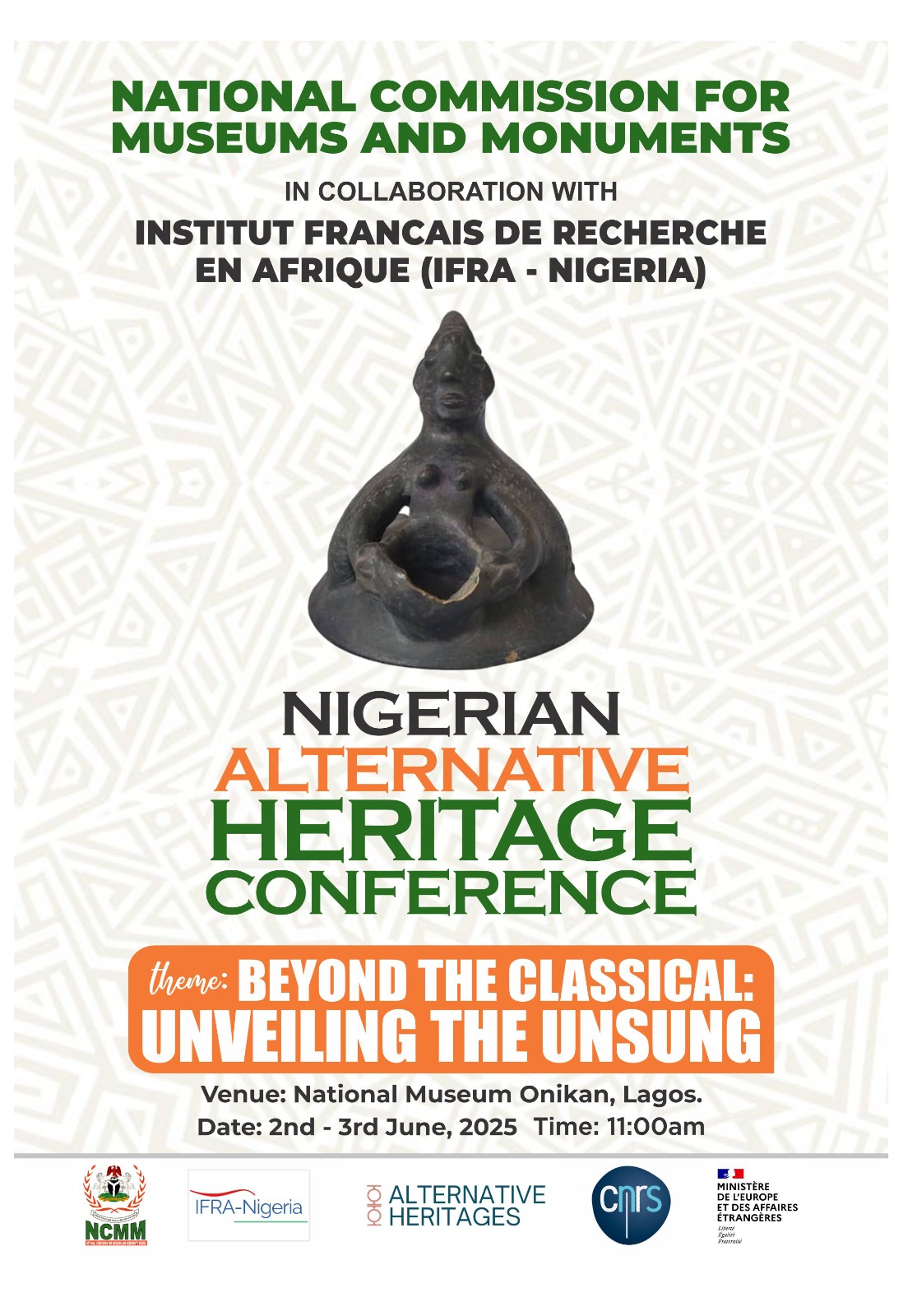 On June 2 and 3, 2025, the National Museum Lagos hosted the "Beyond the classical: unveiling the unsung" conference. A collaboration with IFRA-Nigeria, as part of the Nigerian Alternative Heritages project, made possible by the French Embassy Fund. A follow-up to the exhibition of the same name in May, it shared its objective to highlight the forgotten aspects and people of Nigerian heritage. This conference was a unique meeting of academics, archivists, documentalists and specialists of the topic. This event marked the completion of our first year of collaboration.
On June 2 and 3, 2025, the National Museum Lagos hosted the "Beyond the classical: unveiling the unsung" conference. A collaboration with IFRA-Nigeria, as part of the Nigerian Alternative Heritages project, made possible by the French Embassy Fund. A follow-up to the exhibition of the same name in May, it shared its objective to highlight the forgotten aspects and people of Nigerian heritage. This conference was a unique meeting of academics, archivists, documentalists and specialists of the topic. This event marked the completion of our first year of collaboration.
Each day, we welcomed two keynotes speakers: Dr Ayo Adeduntan who spoke on "Heritage Power and the Production of the Unsung" and Dr Oluwatoyin Sogbesan on "Alternative Heritage: Redefining Heritage Boundaries in Nigeria." Following a call for abstracts held by IFRA-Nigeria and the Lagos Museum, 12 papers from 13 researchers were selected to be presented at the conference.
See the full program.
Continue Reading
On 18 June, Janet Ogundairo, assisted by Director Barbara Morovich and Deputy-Director Delphine Manetta, organized a panel on "Living at the Margins : Survival, belief, care and belonging among stigmatised groups in Africa".
Following a call for abstracts, Janet Ogundairo selected five papers on the subject of stigmatised groups in Nigeria to be presented at this session. She started by introducing her own work and the panel, before giving the floor to the panellists.
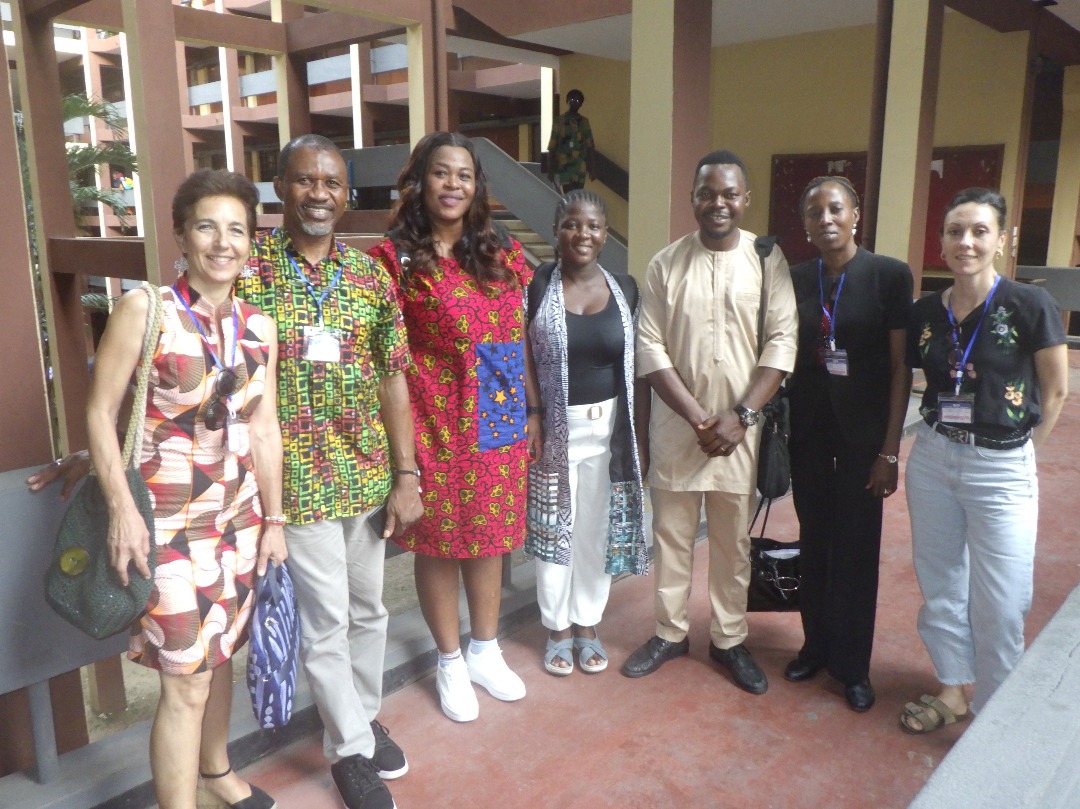
From left to right: Dr Barbara Morovich, Feyisitan Ijimakinwa, Cynthia Olufade, Janet Ogundairo, Joel Abah, Dr Bolarinwa Ogundeji and Dr Delphine Manetta.
Continue Reading
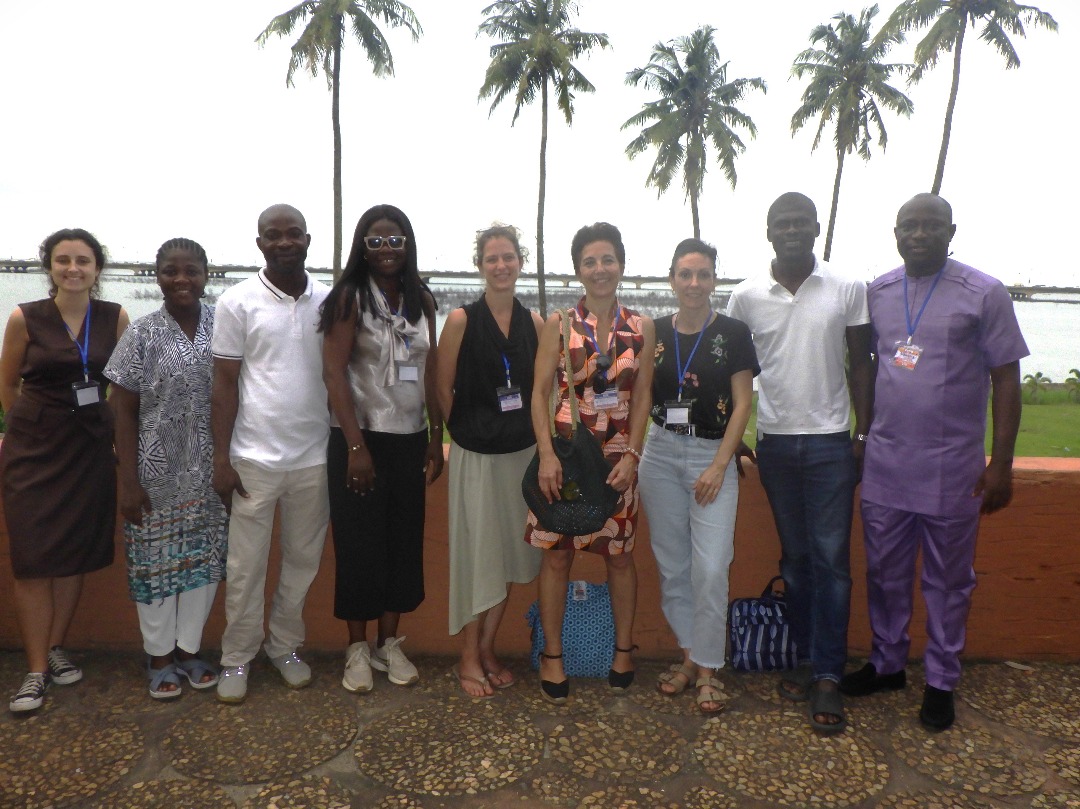 On 17 June, 2025, IFRA-Nigeria had the chance to present a panel at the 2025 Lagos Studies Association (LSA) Conference "Continuities and Discontinuities in African Studies", to present our activities, opportunities for researchers, publications, our resource centre and the work of our colleagues at Nigeria-Watch.
On 17 June, 2025, IFRA-Nigeria had the chance to present a panel at the 2025 Lagos Studies Association (LSA) Conference "Continuities and Discontinuities in African Studies", to present our activities, opportunities for researchers, publications, our resource centre and the work of our colleagues at Nigeria-Watch.
The panel included Director Barbara Morovich, Research Project Manager Marie Lureau, Deputy-director Delphine Manetta, Documentalist Olushola Babaola, and Nigeria Watch Information Retrieval Specialist Abiola Victoria Ayodokun.
The IFRA-Nigeria, as a partner of LSA, sent a delegation from 17 to 19 June, who had the opportunity to attend several panels, and the keynote lecture by Segun Adefila.
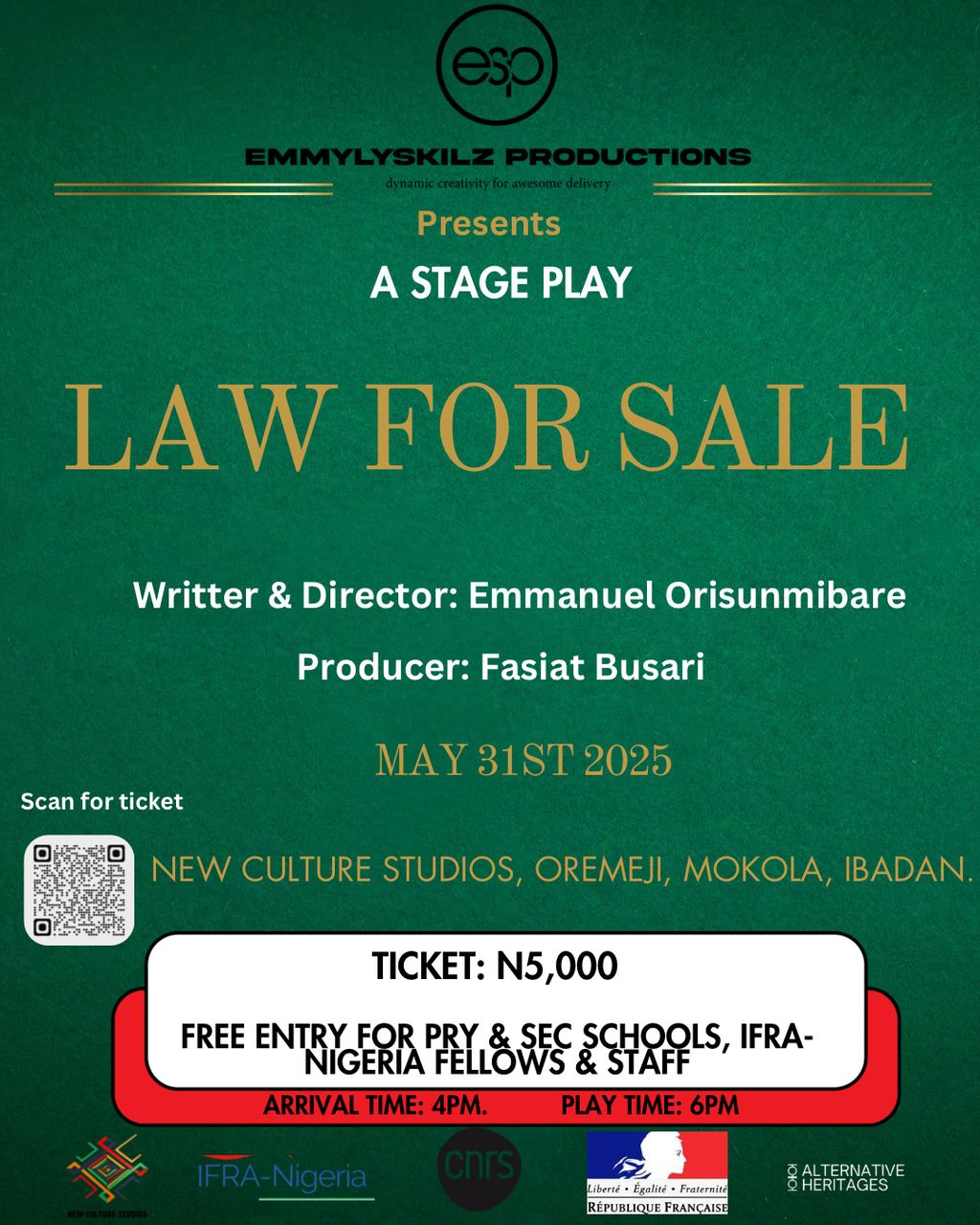 New Culture Studio organised the performance of the play "Law for Sale" written and directed by Emmanuel Orisunmibare and produced by Fasiat Busari, on 31 May. This event is a result of the collaboration with IFRA-Nigeria as part of the French Embassy Fund project, Nigerian Alternative Heritages. Thi stage play is a witty drama and satire on the decadence of the rule of law in society. It follows the life of a chief judge, who sells the law to the highest bidder. His inability to control his desire to amass wealth by selling the law led to a catastrophic revolt from the people.
New Culture Studio organised the performance of the play "Law for Sale" written and directed by Emmanuel Orisunmibare and produced by Fasiat Busari, on 31 May. This event is a result of the collaboration with IFRA-Nigeria as part of the French Embassy Fund project, Nigerian Alternative Heritages. Thi stage play is a witty drama and satire on the decadence of the rule of law in society. It follows the life of a chief judge, who sells the law to the highest bidder. His inability to control his desire to amass wealth by selling the law led to a catastrophic revolt from the people.
Scroll to see some pictures
Continue Reading
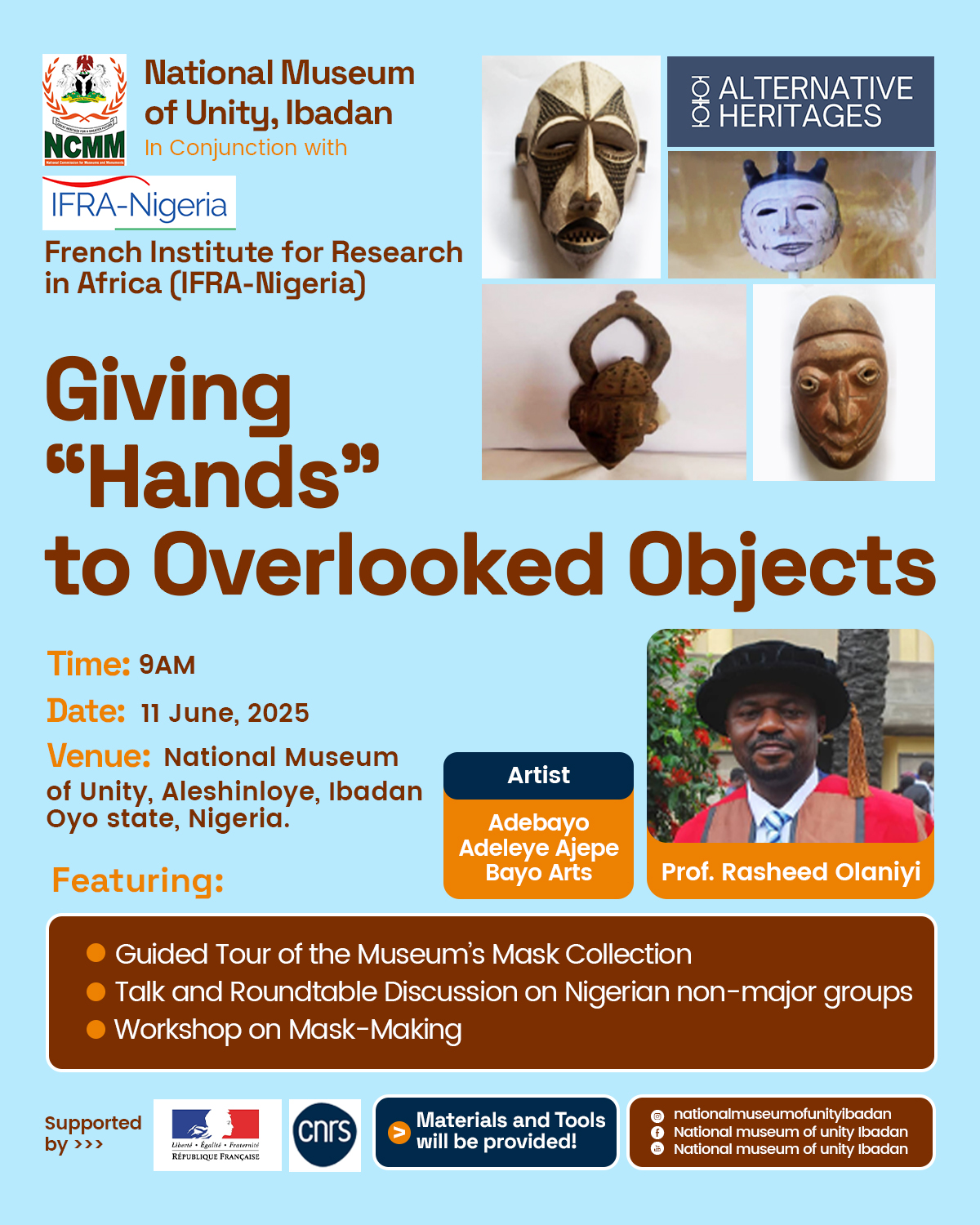 On June 11, 2025, IFRA-Nigeria and the National Museum of Unity hosted the latest event of their partnership within the Nigerian Alternative Heritages project “Giving ‘Hands’ to Overlooked Objects”. The event was centered on so-called minority groups and objects of shared heritage.
On June 11, 2025, IFRA-Nigeria and the National Museum of Unity hosted the latest event of their partnership within the Nigerian Alternative Heritages project “Giving ‘Hands’ to Overlooked Objects”. The event was centered on so-called minority groups and objects of shared heritage.
The National Museum of Unity, among its 2,500+ object collection, holds not only objects from so-called major groups in Nigeria but also from ‘non-major’ groups, exemplifying the shared heritage of Nigerian peoples. Specifically, the mask collection at the museum is evidence of the shared cultural heritage and objects of minority groups across different geopolitical zones in Nigeria. For this event, facemasks from the communities of the Igala, Ibibio, Uhrobo, and Idoma people were showcased. While these masks serve different functions and have varied shapes and meanings, they also share commonalities in religious significance and features associated with cultural festivals.
Continue Reading
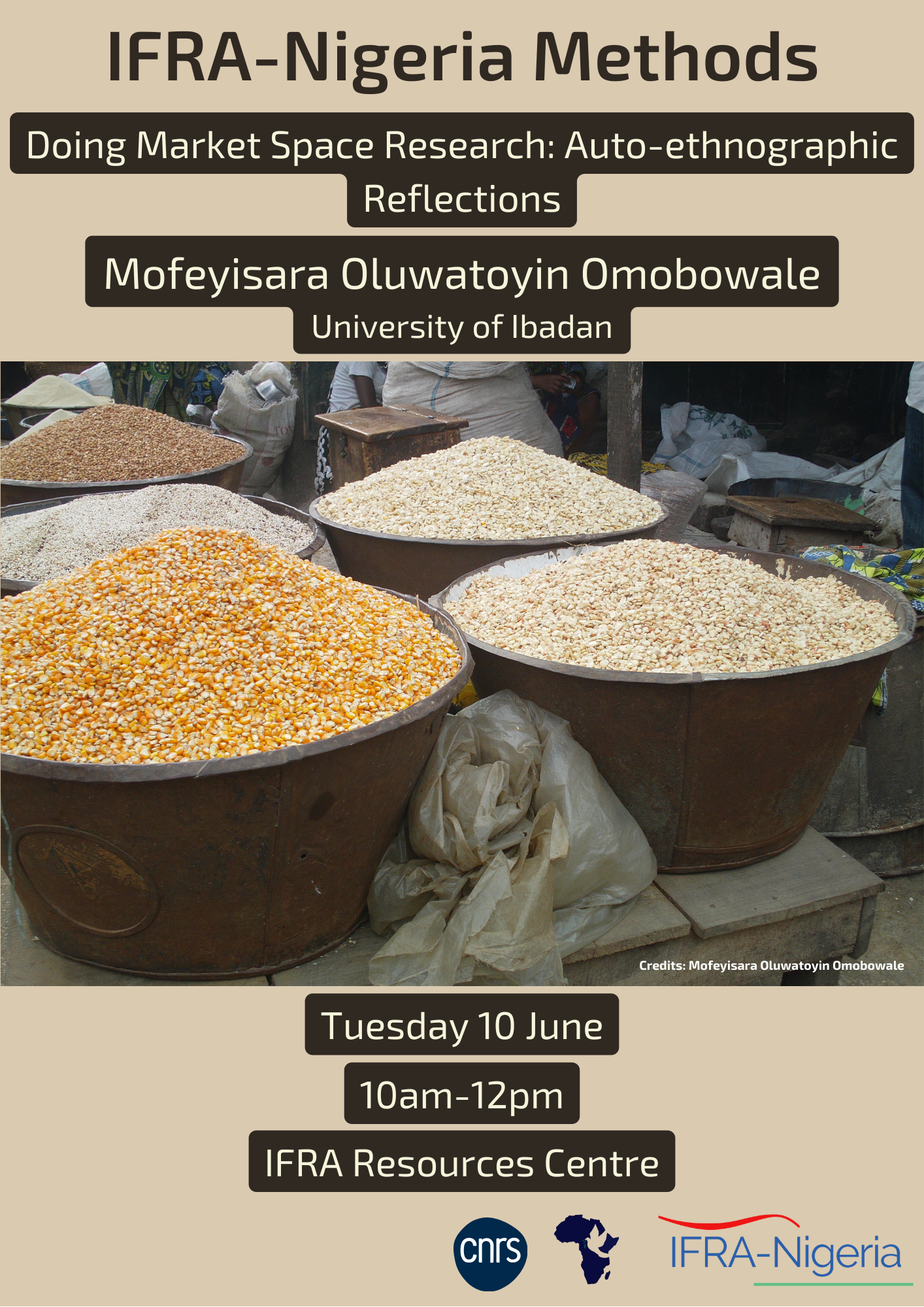 On 10 June 2025, Dr Mofeyisara Oluwatoyin Omobowale held a methodological seminar on "Doing Market Space Research: Auto-ethnographic Reflections" at IFRA-Nigeria Resources Centre. A Senior Research Fellow at the Social and Behavioural Health Unit of Institute of Child Health, College of Medicine at the University of Ibadan, she studies anthropology, public health, gender studies, child and adolescent health. She is a laureate, among other honors, of the American Council of Learned Societies-African Humanities Programme Doctoral Fellow in 2012 and Short Term Scholar, Brown International Advanced Research Institute (BIARI), Brown University (USA) in 2013.
On 10 June 2025, Dr Mofeyisara Oluwatoyin Omobowale held a methodological seminar on "Doing Market Space Research: Auto-ethnographic Reflections" at IFRA-Nigeria Resources Centre. A Senior Research Fellow at the Social and Behavioural Health Unit of Institute of Child Health, College of Medicine at the University of Ibadan, she studies anthropology, public health, gender studies, child and adolescent health. She is a laureate, among other honors, of the American Council of Learned Societies-African Humanities Programme Doctoral Fellow in 2012 and Short Term Scholar, Brown International Advanced Research Institute (BIARI), Brown University (USA) in 2013.
Continue Reading
On 5 June, Dr Sara Panata, Dr Segun Ogunsheye and Olushola Patrick Babalola, IFRA-Nigeria documentalist, held a training on digitalisation and the creation of metadata at the Ogunsheye Foundation. It was organised as part of the Women's and Labour Movements, Adult and Higher Education in Nigeria project, of which IFRA-Nigeria is a partner. Its goal: to digitize the collections of Professor Felicia Adetowun Ogunsheye, women's rights activist and first female professor in Nigeria, and Professor Ayodele Ogunsheye, businessman and adult education professor.
This training was the first step in allowing team members to begin working on the digitalisation of the large quantity of valuable materials kept in the Ogunsheye Foundation. Scroll to see some pictures of the event.
Continue Reading
On 4 June, IFRA-Nigeria Director Barbara Morovich and IFRA-Nigeria team went to visit the Ogunsheye Foundation for the official start of the Women's and Labour Movements, Adult and Higher Education in Nigeria project. They had the opportunity to meet all the project team, including the three team leads : Dr Sara Panata (Laboratoire des Afriques dans le Monde), Dr Segun Ogunsheye (Ogunsheye Foundation) and of course Felicia Adetowun Ogunsheye, the first female professor of Nigeria.
After a visit and presentation of the two sets of archives, those of Professor Felicia Ogunsheye and of Professor Ayodele Ogunsheye, they got to observe the work of digitization of the archives. Scroll below to see some pictures of our visit.
Continue Reading
 Geo Meridien International in partnership with IFRA-Nigeria invites you to the Alternative Heritages Conference, themed “Alternative Heritage and Vernacular Architecture - A Foundational Dialogue”. This conference is held as part of the Nigerian Alternative Heritages project, financed by the French Embassy Fund (FEF).
Geo Meridien International in partnership with IFRA-Nigeria invites you to the Alternative Heritages Conference, themed “Alternative Heritage and Vernacular Architecture - A Foundational Dialogue”. This conference is held as part of the Nigerian Alternative Heritages project, financed by the French Embassy Fund (FEF).
 On 31 July, the Institute of African Studies (IAS) of the University of Ibadan and IFRA-Nigeria organized the fourth session of the Critical Decolonialities Seminar on the topic of “Queer Archiving – a decolonial practice? The experiences of the GALA Queer Archive”. Professor Sola Olorunyomi, director of IAS, and Dr Barbara Morovich, Director of IFRA-Nigeria, introduced the two speakers. Linda Chernis is an archivist at the
On 31 July, the Institute of African Studies (IAS) of the University of Ibadan and IFRA-Nigeria organized the fourth session of the Critical Decolonialities Seminar on the topic of “Queer Archiving – a decolonial practice? The experiences of the GALA Queer Archive”. Professor Sola Olorunyomi, director of IAS, and Dr Barbara Morovich, Director of IFRA-Nigeria, introduced the two speakers. Linda Chernis is an archivist at the  The exhibition "Zongo en recit, des citadinites haoussas d'hier et d'aujourd'hui" is taking place in Cotonou, Benin Republic, 26 July and 3 August. Berenice Busson, PhD student at Universite Paris Cite and its organisator, presented her pictures and the result of her research in the Zongo neighbourhood of Cotonou.
The exhibition "Zongo en recit, des citadinites haoussas d'hier et d'aujourd'hui" is taking place in Cotonou, Benin Republic, 26 July and 3 August. Berenice Busson, PhD student at Universite Paris Cite and its organisator, presented her pictures and the result of her research in the Zongo neighbourhood of Cotonou. IFRA-Nigeria and the Institute of African Studies are pleased to invite you to another session of the "Critical Decolonialities: Afro-global perspectives" seminar series scheduled for 31 July 2025. This session will feature Linda Chernis, GALA Queer Archives, University of the Witwatersrand, who will present on “Queer Archiving – a decolonial practice? The experiences of the GALA Queer Archive”.
IFRA-Nigeria and the Institute of African Studies are pleased to invite you to another session of the "Critical Decolonialities: Afro-global perspectives" seminar series scheduled for 31 July 2025. This session will feature Linda Chernis, GALA Queer Archives, University of the Witwatersrand, who will present on “Queer Archiving – a decolonial practice? The experiences of the GALA Queer Archive”. On 25 June, IFRA-Nigeria, in collaboration with the Institute of African Studies, University of Ibadan, hosted Dr Mutiat Titilope Oladejo (Department of History, University of Ibadan) and Dr Ayo Adeduntan (Institute of African Studies, University of Ibadan) for another edition of the “Critical Decolonialities” seminar series. The session, titled “(De)Colonial Dynamics of Science-Based Research at the University of Ibadan (Nigeria), 1962 - 1983,” explored the evolution of science-based research at the University of Ibadan (UI) through the dual lenses of colonial legacies and Afrocentric renewal.
On 25 June, IFRA-Nigeria, in collaboration with the Institute of African Studies, University of Ibadan, hosted Dr Mutiat Titilope Oladejo (Department of History, University of Ibadan) and Dr Ayo Adeduntan (Institute of African Studies, University of Ibadan) for another edition of the “Critical Decolonialities” seminar series. The session, titled “(De)Colonial Dynamics of Science-Based Research at the University of Ibadan (Nigeria), 1962 - 1983,” explored the evolution of science-based research at the University of Ibadan (UI) through the dual lenses of colonial legacies and Afrocentric renewal. On 11, 13 and 16 June, IFRA-Nigeria organized a practical research workshop titled “Observe, survey, map and draw relations with nature(s) in Ibadan Campus.” Its goal: introduce 20 master’s students to original methods of doing research, in particular anthropology and urbanism, and, most of all, to give them the opportunity to practice them within the campus.
On 11, 13 and 16 June, IFRA-Nigeria organized a practical research workshop titled “Observe, survey, map and draw relations with nature(s) in Ibadan Campus.” Its goal: introduce 20 master’s students to original methods of doing research, in particular anthropology and urbanism, and, most of all, to give them the opportunity to practice them within the campus. On June 2 and 3, 2025, the National Museum Lagos hosted the "Beyond the classical: unveiling the unsung" conference. A collaboration with IFRA-Nigeria, as part of the Nigerian Alternative Heritages project, made possible by the French Embassy Fund. A follow-up to the exhibition of the same name in May, it shared its objective to highlight the forgotten aspects and people of Nigerian heritage. This conference was a unique meeting of academics, archivists, documentalists and specialists of the topic. This event marked the completion of our first year of collaboration.
On June 2 and 3, 2025, the National Museum Lagos hosted the "Beyond the classical: unveiling the unsung" conference. A collaboration with IFRA-Nigeria, as part of the Nigerian Alternative Heritages project, made possible by the French Embassy Fund. A follow-up to the exhibition of the same name in May, it shared its objective to highlight the forgotten aspects and people of Nigerian heritage. This conference was a unique meeting of academics, archivists, documentalists and specialists of the topic. This event marked the completion of our first year of collaboration.
 On 17 June, 2025, IFRA-Nigeria had the chance to present a panel at the 2025 Lagos Studies Association (LSA) Conference "Continuities and Discontinuities in African Studies", to present our activities, opportunities for researchers, publications, our resource centre and the work of our colleagues at Nigeria-Watch.
On 17 June, 2025, IFRA-Nigeria had the chance to present a panel at the 2025 Lagos Studies Association (LSA) Conference "Continuities and Discontinuities in African Studies", to present our activities, opportunities for researchers, publications, our resource centre and the work of our colleagues at Nigeria-Watch. New Culture Studio organised the performance of the play "Law for Sale" written and directed by Emmanuel Orisunmibare and produced by Fasiat Busari, on 31 May. This event is a result of the collaboration with IFRA-Nigeria as part of the French Embassy Fund project, Nigerian Alternative Heritages. Thi stage play is a witty drama and satire on the decadence of the rule of law in society. It follows the life of a chief judge, who sells the law to the highest bidder. His inability to control his desire to amass wealth by selling the law led to a catastrophic revolt from the people.
New Culture Studio organised the performance of the play "Law for Sale" written and directed by Emmanuel Orisunmibare and produced by Fasiat Busari, on 31 May. This event is a result of the collaboration with IFRA-Nigeria as part of the French Embassy Fund project, Nigerian Alternative Heritages. Thi stage play is a witty drama and satire on the decadence of the rule of law in society. It follows the life of a chief judge, who sells the law to the highest bidder. His inability to control his desire to amass wealth by selling the law led to a catastrophic revolt from the people. On June 11, 2025, IFRA-Nigeria and the National Museum of Unity hosted the latest event of their partnership within the
On June 11, 2025, IFRA-Nigeria and the National Museum of Unity hosted the latest event of their partnership within the  On 10 June 2025, Dr Mofeyisara Oluwatoyin Omobowale held a methodological seminar on "Doing Market Space Research: Auto-ethnographic Reflections" at IFRA-Nigeria Resources Centre. A Senior Research Fellow at the Social and Behavioural Health Unit of Institute of Child Health, College of Medicine at the University of Ibadan, she studies anthropology, public health, gender studies, child and adolescent health. She is a laureate, among other honors, of the American Council of Learned Societies-African Humanities Programme Doctoral Fellow in 2012 and Short Term Scholar, Brown International Advanced Research Institute (BIARI), Brown University (USA) in 2013.
On 10 June 2025, Dr Mofeyisara Oluwatoyin Omobowale held a methodological seminar on "Doing Market Space Research: Auto-ethnographic Reflections" at IFRA-Nigeria Resources Centre. A Senior Research Fellow at the Social and Behavioural Health Unit of Institute of Child Health, College of Medicine at the University of Ibadan, she studies anthropology, public health, gender studies, child and adolescent health. She is a laureate, among other honors, of the American Council of Learned Societies-African Humanities Programme Doctoral Fellow in 2012 and Short Term Scholar, Brown International Advanced Research Institute (BIARI), Brown University (USA) in 2013.
Social Media
Mailing List